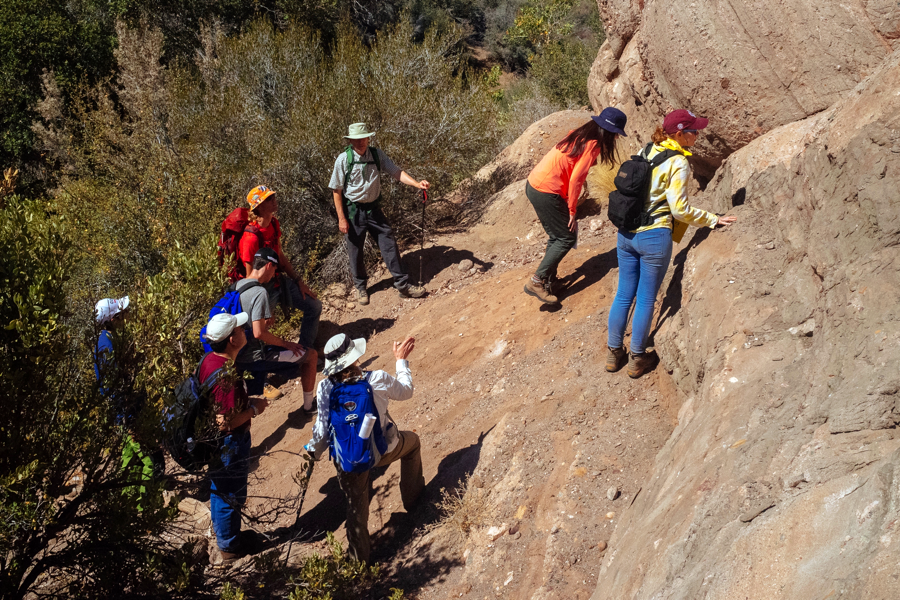All Categories
Featured
Table of Contents
How A Geophysical Survey Is Crucial To Offshore Wind Farm ... in Morley Australia 2021

Other possible geophysicist majors that aren't geophysics or geoscience consist of: Climatic sciences and meteorology Chemical and physical oceanography Earth science Environmental science Hydrology and water resources science Materials science By earning any geophysicist degree, and by taking the essential geology courses, you must receive an entry-level position as a geoscientist or geophysicist.
Eventually, students must discover: a branch of geology that takes a look at the different aspects of minerals, consisting of chemical structure, internal crystal structure, and physical properties. the study of rocks and the procedures and conditions that form and transform them in time. There are a couple of subdivisions in this branch of geology, including igneous, metamorphic, and sedimentary rocks.

This field analyzes structural rock features such as cleavage, faults, joints, and little folds. They must likewise learn the computer abilities essential to: evaluate information develop digital models and maps run geoscientists' software application Trainees ought to also benefit from all chances to get real-world experience. Ambitious geophysicists ought to anticipate to spend time knowing: in the classroom in the field in labs Clearly, skills taught in the class are extremely crucial for aiming geophysicists.
Definition: Geophysical Survey in Medina Aus 2021
For example, geoscientists spend a great deal of their time outside when working in the field, so they need to have "outdoor abilities" like camping and operating boats, aircraft, and other automobiles. Since they spend a lot time in remote places, it's necessary that geophysicists also have the physical stamina to carry required devices on their hikes to places of research study.
The task uses: a high median and leading incomes a high rate of personal complete satisfaction among geophysicists low work stress positive job outlook Additional details on incomes potential and task outlook is detailed below. For students aiming to land an entry-level role as a geoscientist or geophysicist, it takes four years, or the time required to finish a bachelor's degree in geophysics or a related discipline.
Some research positions in geophysics need postgraduate degrees. Likewise, if you prepare to teach at a college or university, you need to earn a Ph - Where Can A Geophysicist Work Other Than The Oil Industry? in Parmelia Australia 2023. D. in geophysics or a related field. The time it requires to earn a Ph. D. varies by organization and program, however it typically takes 4 to six years beyond the bachelor's degree.
Consumer Guide To Geological And Geophysical Services ... in Bentley Aus 2022
A lot of employers require prospects to have a bachelor's degree in geophysics or a carefully related discipline for all entry-level positions. And, in some cases, companies need a master's degree. As a result, there's no way around the degree requirements for ending up being a geophysicist. A lot of companies will anticipate or require a practicing geologist to be accredited for positions beyond those at the entry level.
Presently, 31 states need licensing for geologists, although licensing is not constantly needed, especially for entry-level work. The states that do concern licenses use the Basics of Geology Test (FGE), which is administered through the National Association of State Boards of Geology (ASBOG). Now that you understand which degree for geophysicist jobs you need, you'll require to land a job, and it's important to learn how much cash you can make in this profession.
According to BLS, the median yearly wage for geoscientists is $93,580. According to BLS, specific industries provide greater wages for geoscientists, and in some cases, they provide higher-than-average profits.
Uses For Geophysical Data in Huntingdale Western Australia 2022
In fact, mining, quarrying, and oil and gas extraction offers over $32,000 more yearly than the typical yearly wage for this occupation. The federal government, too, uses over $10,000 more in profits than the nationwide average for geoscientists. In addition to market type, geographical place can considerably affect profits for this occupation.

The top-paying states and their yearly mean incomes, according to the BLS, consist of: Texas $166,720 Oklahoma $149,630 Pennsylvania $120,590 Hawaii $120,130 Colorado $107,260 These 5 top-paying states provide much greater incomes than the average for this occupation. Earnings for geoscientists in Texas are over $73,000 higher than the national average.
It should come as not a surprise that the majority of these high-paying locations are in Texas and Oklahoma, but some are discovered in California, Louisiana, and Colorado. The top 10 highest-paying metro locations for geoscientists are: Houston-The Woodlands-Sugar Land, Texas: $188,400 Tulsa, Oklahoma: $186,490 Midland, Texas: $167,040 Odessa, Texas: $147,080 Oklahoma City, Oklahoma: $145,350 Bakersfield, California: $130,080 Urban Honolulu, Hawaii: $124,470 New Orleans-Metairie, Louisiana: $121,030 Washington-Arlington-Alexandria, DC, VA, MD, WV: $120,180 Denver-Aurora-Lakewood, Colorado: $116,910 For some geoscientists and geophysicists, residing in a metro city is not as attractive as residing in a smaller sized neighborhood.
Latest Posts
Where Can A Geophysicist Work Other Than The Oil Industry? in Ellenbrook Oz 2021
Geophysicist in Como Aus 2022
Geophysical Surveys Definition & Meaning In Stock ... in Karrinyup Aus 2022